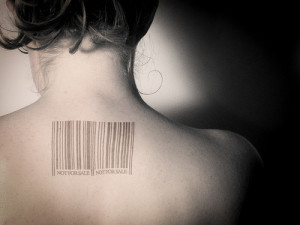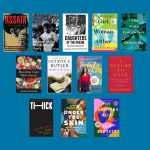 This Sunday, more than 100 million pairs of eyes will be on New Jersey’s MetLife Stadium, where the Broncos and Seahawks will meet for Super Bowl XLVIII. Just outside the stadium – but a world away from the lights and cameras – some of this country’s most vulnerable women and girls will be forced to work as part of the modern day slave trade. Worldwide, sporting events attract a flood of human traffickers and here in the US, the Super Bowl has been called “the single largest human trafficking incident” in the country.
This Sunday, more than 100 million pairs of eyes will be on New Jersey’s MetLife Stadium, where the Broncos and Seahawks will meet for Super Bowl XLVIII. Just outside the stadium – but a world away from the lights and cameras – some of this country’s most vulnerable women and girls will be forced to work as part of the modern day slave trade. Worldwide, sporting events attract a flood of human traffickers and here in the US, the Super Bowl has been called “the single largest human trafficking incident” in the country.
With so much attention focused on one place, we have a rare opportunity to advocate for and support the women and girls whose circumstances are too often ignored or unrecognized. Traffickers force or coerce victims into labor, services, or commercial sex acts, and they target vulnerable populations, like women who live in poverty, runaway and homeless youth, and undocumented immigrants.
While trafficking can happen to anyone, women and children are far more likely to be the victims of trafficking: a report from Polaris Project, an organization that fights modern day slavery, found that 85% of sex trafficking cases and 60% of labor cases referenced women as the victims. The University of Minnesota’s Human Rights Center states simply that, “at its core, trafficking is a result of women’s unequal economic status.”
In New Jersey, advocates are conducting trainings for transportation and hospitality workers and using street outreach efforts to help people recognize the signs of trafficking and help those who may be victims. Law enforcement officials have stepped up their efforts as well, and this week the House Committee on Foreign Affairs held a hearing on preventing trafficking at major sporting events.
One of the women who testified at the hearing was Holly Smith, a survivor of child sex trafficking. It was 1992 and Holly was 14 when a man she met at a mall convinced her to run away from home, promising her the life she dreamed of. “Within hours of running away,” she testified, “I was forced into prostitution on the streets and in the casino hotels and motels of Atlantic City, New Jersey.”
Within a couple of days, she was arrested and “treated like a criminal.” For years after that, she said she didn’t realize that other women and girls around the world shared her experience until she watched a documentary about it. Now, she wonders if campaigns, media attention and public concern around the 1992 Super Bowl may have heightened awareness and prevented her situation.
Whether you are headed to New Jersey for the big game this weekend or not, there are potential indicators of human trafficking that can help you recognize warning signs wherever you are. According to Polaris Project, potential victims may:
– Be fearful, anxious, tense, nervous or paranoid
– Exhibit unusually fearful or anxious behavior after bringing up law enforcement
– Show signs of physical abuse, restraint, confinement or torture
– Not be in control of her/his own money and/or identification
– Not be allowed or able to speak for themselves (a third party may insist on being present and/or translating).
Polaris Project has a more comprehensive list here. If you see any of these red flags, you are encouraged to call the National Human Trafficking Resource Center hotline at 888-373-7888 or send a text to BeFree (233733).
So while you excitedly cheer on your favorite teams this weekend, be mindful that human trafficking thrives on the chaos and celebration of the Super Bowl and similar events. By being educated and vigilant, we can be advocates for women and girls, and work together to make sure that no children have to go through what Holly Smith experienced.


